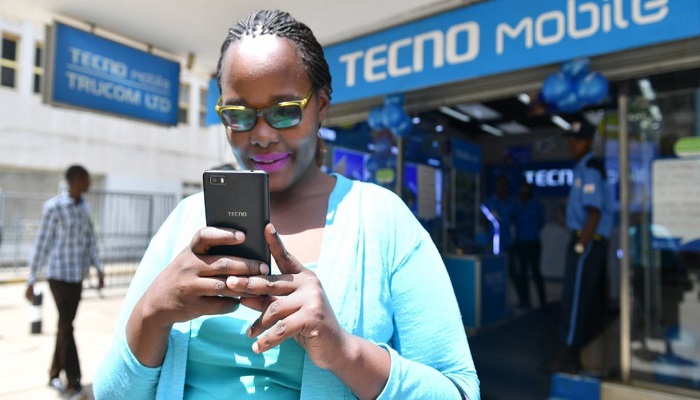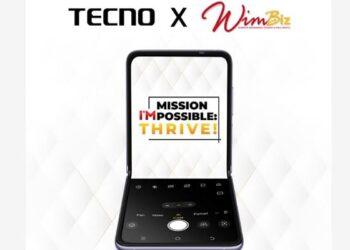Much has been said about the mobile phone revolution in Nigeria –the depth of its penetration even in remote areas, and how this technology has become a growth enabler, just like the railroads were in the US.
However, one critical but muted perspective to this story is the role played by the calculating, intense, ruthless and prolific Chinese OEMs (Original Equipment Manufacturers) in the mobile phone penetration drive. Though these OEMs have historically played in the back-end of the value chain as manufacturers and wholesalers, a remarkable shift into front-end retail is occurring.
This shift is upending the industry and illustrating the scale of their dominance and impact in the Nigerian market.
The backdrop
For those who may be unfamiliar, the story started sometime in 2006, when the Nigerian mobile phone market was dominated by brands from developed markets. This was an era where phones were expensive, and mainly the preserve of the middle-upper class.
The multitude of lower income consumers were cut off, as they couldn’t afford to own phones. The gap in the market was identified, and a little-known Shenzhen, China-based phone maker went into action to scoop up one of the most promising phone markets in the world: Nigeria.
The firm, named Transsion Holdings (formerly called Tecno Telecoms), an unknown in its home country, sought a market in Africa as competition in China was intense. To fill the gap left by the bigger established brands, Transsion produced low-priced phones for the bottom-end market in 3 brands: Tecno, Itel, and later, Infinix.
To lock in its customers, it established a customer support center to provide free repairs so that buyers wouldn’t have to spend considerably on phone repairs. It entrenched itself in the market, by setting up an R&D center in Lagos to identify local market trends which it could incorporate into its phones for a more tailor-made experience.
The most famous example of local trends built into its mobile phones was customers’ preference for 2 or more phones numbers due to poor mobile networks. Tecno was thus one of the first brands to launch dual-SIM phones.Other features aimed at localizing its products were: strong batteries, in recognition of the epileptic power supply in Nigeria; a collaboration with Opera so that users browse the internet cheaply; Flash Share, which came pre-installed on its phones to allow users share files without consuming data; and preinstalling 2GO, the popular chat app that helped migrate droves of Nigeria’s rural dwellers and poor to the cyber universe of online relationships and even online dating.
Using more formal channels, it customized its phones for telcos including MTN, Etisalat and Airtel who sought to provide cheap phones to boost their subscriber numbers. All these features were meant to contextualize its products for the Nigerian market, and needless to say, they made them a hit.
Aggressive transition from an OEM to a retail and lifestyle brand
Being a budget phone, its appeal was limited only to those at the bottom of the pyramid. But that was not where Transsion intended to stay; it was just the beginning. Its strategy was simple: start from the bottom to get to the top. First, target the low-income users who mostly dwell in the rural areas, then move to the semi-urban consumers, and finally climb slowly to the metropolitan clientele.
Over subsequent years, it would produce upgraded models, adding high-spec features that sold it to the more tech-savvy smartphone users and those with a little more cash to spend. In all these, it ensured that its phones were priced well below the trendier brands.
To seize the higher socio-economic classes, Transsion spent a boatload of money on marketing.According to a source, a marketing officer for the company was given a budget as large as $1 million to spend on campaign and promotion efforts. It recruited local celebrities, including musicians, for its marketing campaigns in a bid to be presented as classy brand.
In one particular marketing campaign, it hired a celebrity photographer and film director to endorse the camera on its new Phantom 8 smartphone. The company hired swathes of marketers from tech firms that were close to celebrities. Its marketing budget easily exceeds those of its rivals.
Transsion was not satisfied with being just an OEM or a supplier. It aimed to become the consummate technology and consumer electronics company involved in hardware, software, and even lifestyle– it has a software arm called Afmobi and sources say that the company is set to introduce other electronic products soon.
It aims to be the most ubiquitous consumer brand that would become part of the daily lives of users. To achieve this, it saw a need for a vastly improved presentation of its products at the retail level. The company has since begun a retail program aimed at building a direct relationship with consumers that will see it side-step middlemen – distributors and retailers– in the process.
To this end, the company established a chain of retail stores which it named 3C Hub. To further bolster the 3C Hub brand and flesh it out, Transsion systematically swallowed up big local retail operations. This aggressive consolidation move has seen it go after at least 5 big indigenous phone dealers/retailers who have either of the following qualities: a desired level of geographical spread around the country; a recognizable brand name; huge size of turn over; and a robust distribution/dealership operation.
It has successfully acquired 2 of these kinds of retailers: Zenco Communications, which was acquired for an unknown fee, and Micro-Station for $5 million, according to sources. It attempted but failed to acquire its original target, Slot Communications – the king of them all. It also attempted and failed to acquire a Port Harcourt based retailer named Carlos Milla Communications.
Zenco Communications was targeted because of its strategic importance in the value chain as an enormous dealer/distributor, with a strong presence in Akwa Ibom. Its retail assets, though deep but not as extensive as Slot, has now been rejigged and converted to a 3C Hub Plaza, while its distribution business is now being devoted to the marketing and distribution of Transsion’s phones. Micro-Station seems assigned to a similar fate as Zenco.
Transsion’s retail program has been its most controversial move since it entered the Nigerian market. It is instigating unease in Nigeria’s phone retail and distribution hub, the Ikeja Computer Village. Local retail or wholesale businesses, which once complemented Transsion in its early stages are now increasingly seen as its rivals in the phone distribution business. And as a rival, Transsion has been aggressive or even hostile towards them. Armed with vast amounts of cash, Transsion presents its takeover targets with acquisition offers.
Those that accept would have their operations rolled into 3C Hub, while those that refuse would inadvertently enter into a heated battle for customers. Observers say that one of Transsion’s retaliatory tactics is to try to open 3C Hub stores in close proximity to the ‘dissidents’, thereby engaging them in a fight for survival. Of course, Transsion would have more staying power in such cases because of its huge cash hoard (which observers say is partly the result of China state-aid or ultra-low interest rates). Indigenous businesses are typically in a weak position because their financing options are limited, and local banks have not been helpful with their high interest rates.
Foreseeing that this would happen, the incumbents (i.e., phone traders under the industry union) initially put up a resistance, by preventing Chinese phone sellers from owning shops and warehouses in Computer Village. They argued that Transsion’s bid to open retail stores would cannibalize their own sales, since it was already their supplier.
Transsion would be able to sell at much lower prices with the added advantage of product warranties, rendering them uncompetitive and at risk of extinction. They accused the Chinese firm of trying to become a monopoly by controlling the entire value chain. But these attempts were ineffective against the flood of cash flowing from China.
Transsion’s 3C Hub has since grown on the strength of strong consumer acceptance. It has, over a relatively short period, expanded its geographical coverage and the number of its retail locations. By public accounts, 3C Hub is now present in at least 12 states of the Federation, including: Lagos, Abuja, Ogun, Oyo, Ondo, Delta, Rivers, Akwa Ibom, Abia, Enugu, Kogi, and Kwara states.
After completely dominating the feature phone market, Transsion is now on course to dominate the smartphone market, as other flagship brands and ‘spec’d out’ models of established phone makers like Samsung and Apple surge past the N100,000 (~$300) and N200,000 (~$500) price points, which are very critical price points for emerging market consumers. The purchasing power of Nigerians have stagnated or even declined following the economic recession, inflation, and the excruciating impact of the exchange rate crises and Naira devaluation. It is in this kind of environment that Transsion thrives.
Follow me on twitter @e_dozzie or write to me at dozie@nairametrics.com






















